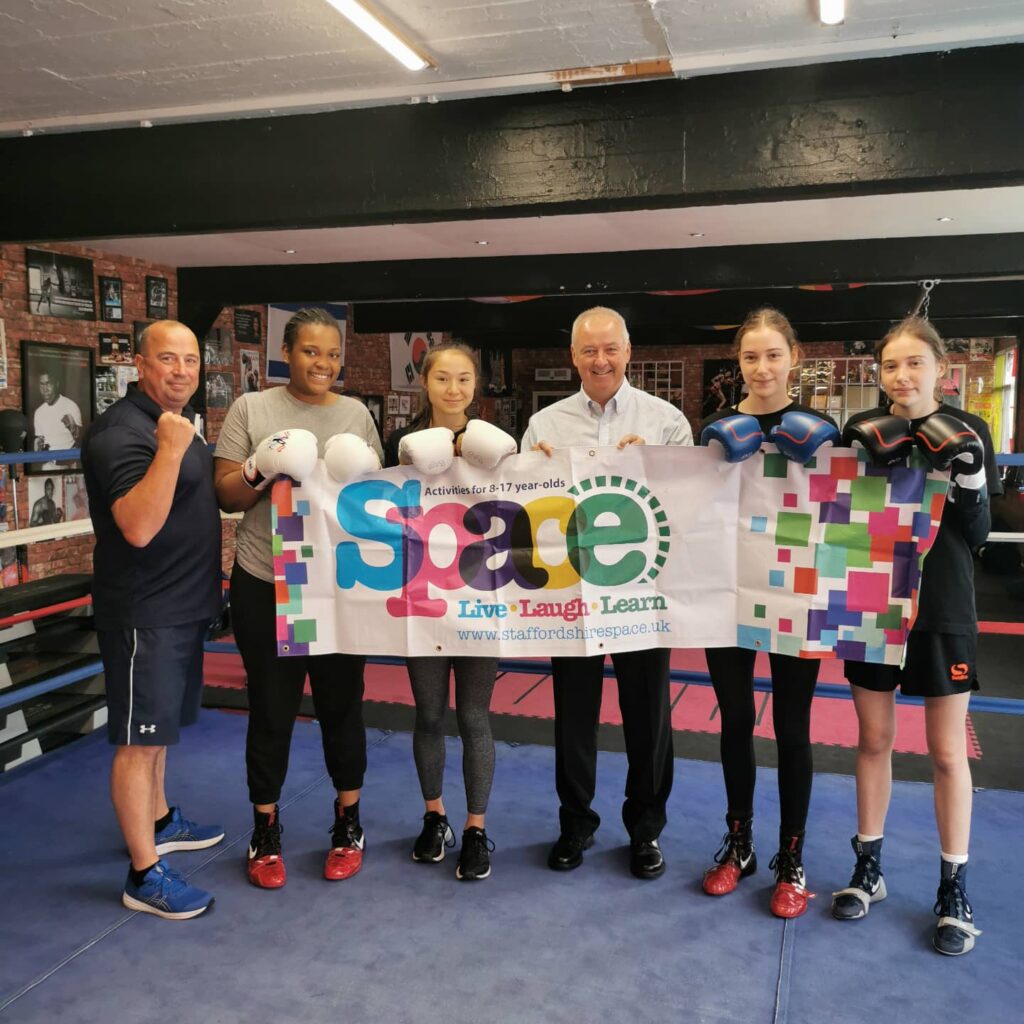Staffordshire Commissioner Ben Adams has confirmed the Space programme for young people will run for a further three years, following the scheme’s success in contributing to a reduction in police recorded youth-related anti-social behaviour (ASB) over the school summer holiday again in 2021.
Over 6,000 young people, aged between 8 and 17, enjoyed over 1,400 Commissioner funded activities as part of the Space programme this summer. There were over 17,600 attendances at events, equating to over 35,333 hours.
The programme relaunched in 2015 and has since gone from strength to strength, with a 77% reduction in ASB during the summer period since 2016. When the programme began in 2016, 1,395 reports of youth related ASB were recorded compared to 320 in 2021.
The summer programme brings together public, voluntary and private sector organisations to provide support for potentially vulnerable young people to help increase their skills, improve their health and wellbeing and create opportunities, while also aiming to reduce levels of ASB.
Due to the Covid-19 pandemic, the programme was unable to offer the same variety or volume of activities as previous years. However, the reduced activities for smaller numbers of participants was commissioned using local organisations with an excellent track record of supporting Space in previous years, all of which followed Government health and safety protocols to ensure the safety of all participants.
Staffordshire Commissioner for Police, Fire & Rescue and Crime, Ben Adams said: ‘I’m delighted to announce that the Space programme will continue for another three years as it is clear to see the positive impact last year’s programme has had on so many lives.
‘These activities provide an opportunity for Staffordshire Police and partners to engage with young people who may be going through a difficult time to help nurture, support and develop them.
‘Space clearly makes a difference to so many, particularly those from more challenging backgrounds, providing a positive experience and directing them away from potential involvement in low-level crime and anti-social behaviour.
‘The programme builds on a tremendous track record of positive engagement by providers, and I’d like to thank everyone involved for their contribution to supporting our local young people.’
The programme received positive feedback from young people, their parents, guardians or carers and activity providers, who praised the scheme for helping turn young people’s lives around.
Anonymous feedback from activity providers demonstrates how the scheme does this:
‘Space gave our son, who is autistic and suffers from social anxiety, the opportunity to explore his limits in a safe environment with peers of similar ability, away from the normal family environment. He grew in confidence and achieved goals that we never dreamed of, as well as having fun. This, entwined with education relating to potential dangers in the community, was simply invaluable.’
‘This person came to our attention when they were moved out of their home city by the police for their own safety after being involved in gang-related crime. They attended the Space programme to occupy their time through the summer holiday. The Space programme provided them with a welcome distraction from current issues and gave them the incentive to help other young people who have also found themselves involved in a gang lifestyle. They have since stated that when they leave college, mentoring is what they would like to do as a possible career.’
‘The Space programme gives not only a diversion away from crime and ASB but an excellent platform to mentor young people and have positive conversations about their future. It also allows staff to mentor young people and to point out positive behaviours and tactfully challenge negative views and behaviours.’
‘We spoke with staff from the care home about the Space programme and they encouraged this person to attend sessions. The relationship with their youth offending officer began to develop and it was clear to see they were beginning to have trust in the system. Their confidence grew and they struck positive relations with staff and other young people while discussing their next transition into college and adult life.’



